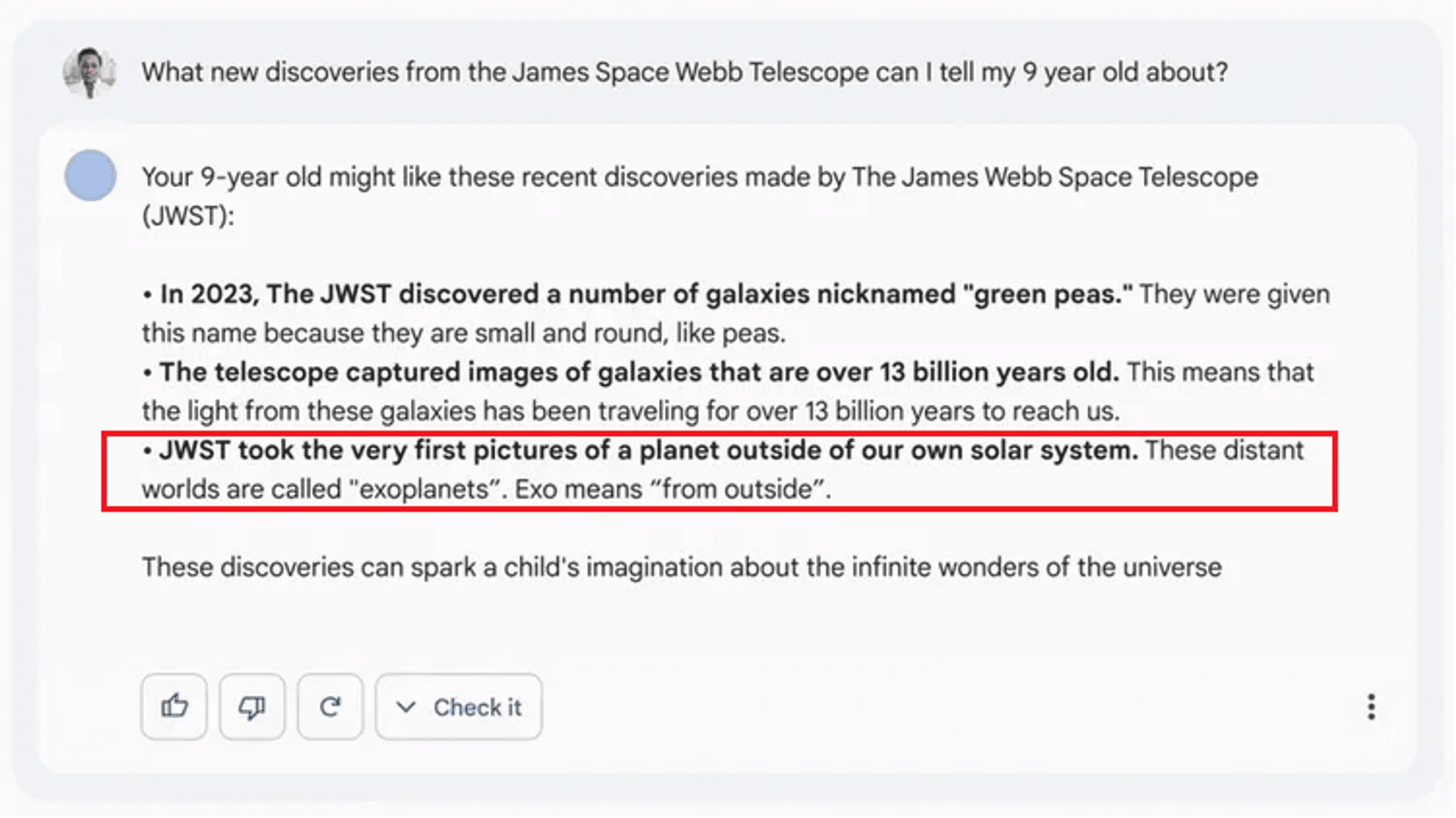AIMLModelSTTLLMGoogleSay Hello to Google’s BardJohn Jacob
John Jacob
5 min read
John Jacob

Google CEO Sundar Pichai announced in a blog post the release of Bard, an AI chatbot that aims to rival OpenAI's ChatGPT. Bard is powered by Google's LaMDA technology, which is a language model for dialogue applications. Google also plans to incorporate LaMDA into its search engine, Google's core product, which could be facing significant risk due to the popularity of OpenAI's ChatGPT. According to Pichai, Bard will first be available as a lighter version of LaMDA to a select group of trusted testers before a wider release later this year. Developers will soon have access to a Generative Language API, initially powered by LaMDA, with a range of models to follow.
What is BARD?
Bard is built on large language models (LLMs) similar to OpenAI’s ChatGPT, and is trained on a vast amount of data from the web to generate responses to user prompts. Bard is designed to explain complex subjects in simple terms, as well as perform tasks like providing suggestions or tips on various topics. The model is smaller and requires less computing power, enabling it to be scaled to more users. The company plans to integrate AI-powered features into Google Search to provide easy-to-digest information with deeper insights and understanding to users. The full capabilities of Bard and its integration into Search will be revealed at a future AI event.
What is LaMDA?
Google LaMDA (Language Model for Dialogue Applications) is an advanced language processing AI technology. LaMDA is designed to generate human-like responses in natural language, making it an ideal tool for creating conversational AI systems. LaMDA is trained on a massive dataset of text and dialogue to understand the context and structure of natural language, enabling it to generate coherent and informative responses to a wide range of questions and prompts. This cutting-edge technology has the potential to revolutionize the way we interact with computers and AI systems, making it possible to have more natural and intuitive conversations with machines. Whether used for customer service chatbots, virtual assistants, or other conversational applications, LaMDA is poised to play a major role in the future of AI technology.
Current Drawbacks of Bard
- Even though ChatGPT only accesses information up to 2021. ChatGPT is widely available to the public for free, while Bard is only available to select users for testing.
- Google has been noted to have the potential to spread misinformation - Recently, Google lost $100 Billion in market value after its new chatbot (Bard) shared inaccurate information as highlighted below.

Bard responded to a prompt suggesting that JWST was used to take the very first pictures of a planet outside the Earth’s Solar System or exoplanets. This is inaccurate. The First pictures of exoplanets were taken by the European Southern Observatory’s very large telescope in 2004, as confirmed by NASA.
Although there are drawbacks to Bard, there are many benefits to Google AI
As per the Blog, Google is taking AI to the next level by bringing the latest advancements in the technology into our everyday products. Google has been a leader in AI technology for many years, with their early Transformer models, like BERT, revolutionizing the way we understand human language. The company’s newest AI technologies, like LaMDA, PaLM, Imagen, and MusicLM, are creating entirely new ways to interact with information, from language and images to video and audio. With the focus on AI-powered features in Search, Google is making it easier for people to access the information they need and turn it into useful knowledge.
Google is also committed to making AI technology accessible to others by providing tools and APIs that make it easy for developers, creators, and enterprises to build innovative applications with AI. By partnering with organizations like Cohere, C3.ai, and Anthropic, Google is providing the necessary compute power to help startups build reliable and trustworthy AI systems.
How to access Bard?
Right now, only a select group of trusted testers are allowed access to Google’s open-source language model. To receive access, you may need to create a Google AI account, and generate an API key, which can be obtained by submitting an application to Google Bard. If approved, Google Bard will provide an API key which can be used to make requests to the model and receive responses. Please note: Usage fees and restrictions may apply, so the API documentation and terms of service should be reviewed before getting started.
Will Google AI beat Microsoft in the AI Chatbot race?
Recently, Microsoft confirmed it’s $10 Billion dollar investment in OpenAI, and has rolled out ChatGPT, which was already open to everyone to test, and has performed extremely well on various prompts. However, that is not the case with Bard, as it is still in Phase-1 Testing, and is available only for a few selected users. Google CEO Sundar Pichai claims Bard to be an experimental conversational AI service, and is said to be an outlet for creativity and a launchpad for curiosity.
Both companies aren’t stopping with the AI chatbots, and are investing heavily in latest technologies. Google recently invested $300 Million in an AI startup Anthropic, and has existing stake in companies like Cohere and C3.ai. Both companies - Microsoft and Google are integrating their AI Chatbot technology into their existing Search Engines. Microsoft’s strategic move could beat Google at their own game with Bing.
Rapid Assimilation of AI
The integration of AI into our everyday products is just the beginning of a new era in technology. With companies like Google, Microsoft and OpenAI leading the way, we can expect to see more innovations and advancements in AI in the coming months and years. Companies like Meta, Apple and Amazon are yet to reveal their contribution to the AI Chatbot space, which is also eagerly anticipated.
If you want to see how we've utilized LLMs in the conversational AI space, don't forget to subscribe to notifications for our Intelligent Reports for Audio/Video Product Hunt page. Our AI-powered system can turn any conversation or meeting into a valuable resource!
Check out our other blogs for more interesting content.

